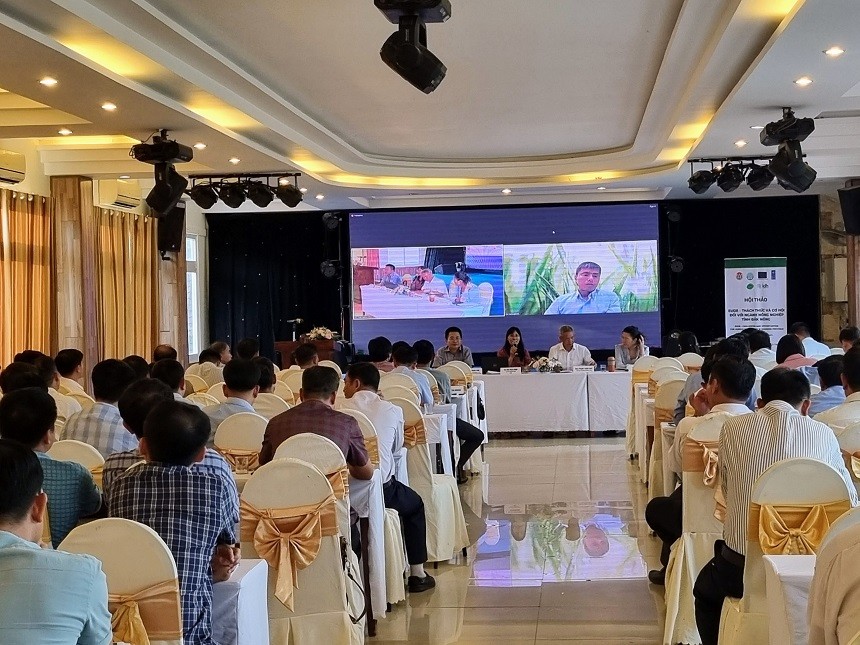
Challenges and opportunities for Dak Nong agriculture in implementation of EUDR
Latest
 |
| Challenges and Opportunities for Dak Nong Agriculture. Overview of the workshop. (Photo: Phan Giang) |
On August 16, in Dak Nong province, the Department of Agriculture and Rural Development, in collaboration with the "Integrated Sustainable Landscape Management through Deforestation-Free Jurisdiction Project in Lam Dong and Dak Nong, Viet Nam" (or iLandscape project), hosted a workshop titled "Challenges and Opportunities for Dak Nong Agriculture in the Implementation of the European Deforestation-free Regulation (EUDR)."
With a focus on Dak Nong's crucial coffee industry, the workshop served as a forum to share the wide-ranging effects of the European Deforestation-free Regulation (EUDR) on its agriculture sector and discuss how to make Dak Nong's coffee production fit with the strict requirements of the EUDR.
The agenda for the workshop was organized around six central themes: EUDR, EUDR potential impacts on Dak Nong agriculture sector, implementation solutions, cooperative mechanism, communication strategy, and relevant stakeholder engagement and roles.
Participants included provincial and district department representatives, businesses, and cooperatives, farmers engaged in coffee production and trade, delegates from the Delegation of the European Union, the United Nations Development Program (UNDP) in Vietnam, and the Sustainable Trade Initiative (IDH).
Over 40 different ethnic groups live together, Dak Nong Province is home to about 700,000 people. The province gives 49% of its land to farming and 45% to forests. Dak Nong is known for critical goods like coffee, pepper, rubber, and cashew nuts, which comprise nearly 19% of the country's coffee production.
EUDR has a direct impact on Viet Nam's main export sectors including coffee, rubber, timber and wood products. For the coffee, there are both chances and difficulties. The long history of coffee production in the province is a strong foundation for sustainable development. The forest and coffee areas are managed in accordance with EUDR, reflecting sustainability. Digitalization in coffee production is the right direction in the implementation of EUDR.
Challenges were also discussed at the workshop. The strict implementation of small-scale agricultural regulations throughout the extensive coffee-growing region and its adaptation to EUDR requirements are of the utmost importance. Traceability and navigating EUDR's standards within a tight period and with limited resources are hampered by the lack of data.
The iLandscape is supporting the Ministry of Agriculture and Rural Development and Dak Nong and Lam Dong provinces in promoting deforestation-free jurisdictional approach. The project will support MARD and the two provinces to implement the EUDR. The iLandscape project is funded by the European Delegation and supported by UNDP. The project aims to enhance forest ecosystems, improve livelihoods, and sustain food production in the Central Highlands provinces of Lam Dong and Dak Nong.





















